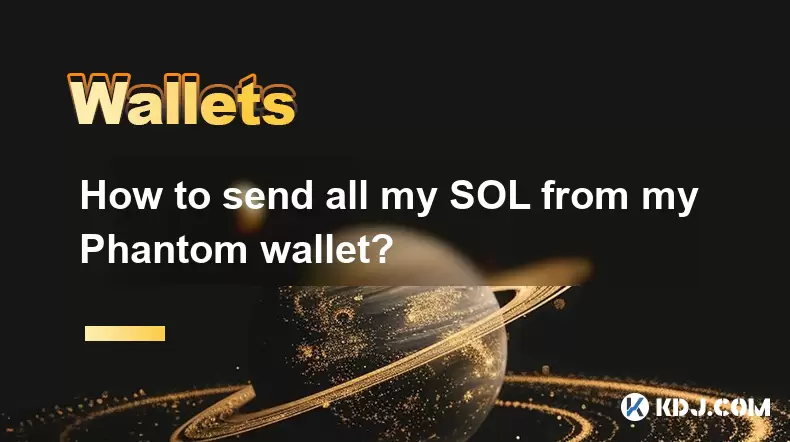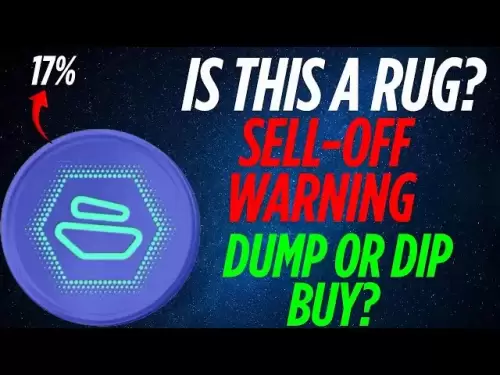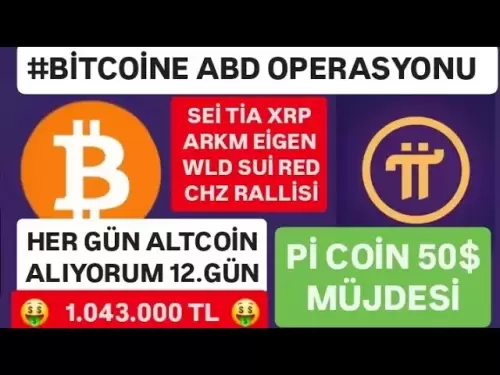-
 Bitcoin
Bitcoin $108,010.6153
-0.99% -
 Ethereum
Ethereum $2,535.1451
-1.14% -
 Tether USDt
Tether USDt $1.0002
-0.01% -
 XRP
XRP $2.2599
-0.33% -
 BNB
BNB $660.3442
-0.18% -
 Solana
Solana $149.0762
-1.43% -
 USDC
USDC $0.9999
0.00% -
 TRON
TRON $0.2866
-0.41% -
 Dogecoin
Dogecoin $0.1669
-2.73% -
 Cardano
Cardano $0.5765
-1.53% -
 Hyperliquid
Hyperliquid $38.5005
-2.98% -
 Bitcoin Cash
Bitcoin Cash $496.7709
-0.04% -
 Sui
Sui $2.8522
-2.12% -
 Chainlink
Chainlink $13.2812
-1.50% -
 UNUS SED LEO
UNUS SED LEO $9.0486
0.17% -
 Stellar
Stellar $0.2466
-2.57% -
 Avalanche
Avalanche $17.8271
-2.84% -
 Shiba Inu
Shiba Inu $0.0...01158
-1.66% -
 Toncoin
Toncoin $2.7359
-4.01% -
 Hedera
Hedera $0.1563
-1.78% -
 Litecoin
Litecoin $85.8096
-1.80% -
 Monero
Monero $313.7645
-2.86% -
 Dai
Dai $1.0002
0.02% -
 Polkadot
Polkadot $3.3494
-1.35% -
 Ethena USDe
Ethena USDe $1.0003
0.03% -
 Bitget Token
Bitget Token $4.2980
-3.40% -
 Uniswap
Uniswap $7.3906
-0.28% -
 Aave
Aave $280.1449
-2.34% -
 Pepe
Pepe $0.0...09833
-2.41% -
 Pi
Pi $0.4546
-2.21%
Can the private key and mnemonic phrase of Ethereum wallet be stored in the cloud?
Never store your Ethereum private keys or mnemonic phrases in the cloud; cloud services are vulnerable to breaches and hacking, jeopardizing your funds. Prioritize offline, secure storage methods like hardware wallets or paper wallets for ultimate protection.
Mar 24, 2025 at 03:49 am

Key Points:
- Storing Ethereum private keys and mnemonic phrases in the cloud is generally strongly discouraged due to significant security risks.
- Cloud services, while convenient, are vulnerable to hacking, data breaches, and unauthorized access.
- Alternative, secure storage methods exist, offering better protection for your cryptocurrency.
- Understanding the risks involved is crucial before deciding how to store your Ethereum wallet credentials.
- Regular backups of your keys and phrases, using offline methods, are essential.
Can the private key and mnemonic phrase of an Ethereum wallet be stored in the cloud?
The short answer is: No, you should absolutely not store your Ethereum private key and mnemonic phrase in the cloud. While cloud storage offers convenience and accessibility, it introduces significant security vulnerabilities that could lead to the irreversible loss of your funds. The inherent risks far outweigh any perceived benefits. Your private key and mnemonic phrase are the sole keys to your Ethereum wallet; compromising them means losing access to your cryptocurrency.
Why Cloud Storage is Insecure for Crypto Keys:
Cloud services, even those with robust security measures, are susceptible to various threats. These include:
- Data breaches: Major cloud providers have experienced data breaches in the past, exposing sensitive user information. If your private keys are compromised in a breach, your Ethereum funds are at risk.
- Hacking and malware: Hackers constantly target cloud services, seeking vulnerabilities to steal data. Malware could infect your device and compromise your keys, even if they are encrypted within the cloud.
- Insider threats: Employees with access to cloud server infrastructure could potentially steal your private keys.
- Phishing and social engineering: Malicious actors may try to trick you into revealing your cloud login credentials, granting them access to your private keys.
- Third-party vulnerabilities: The security of your cloud storage relies on the security of the cloud provider. If they experience a vulnerability, your data is at risk.
Secure Alternatives to Cloud Storage:
Instead of relying on the cloud, consider these safer alternatives for storing your Ethereum private keys and mnemonic phrases:
- Hardware wallets: These are physical devices designed specifically for securely storing cryptographic keys. They offer the highest level of security against hacking and malware.
- Paper wallets: This involves printing your private key and mnemonic phrase on paper and storing it securely in a physical location, such as a fireproof safe.
- Offline encrypted files: You can create an encrypted file on your computer, containing your private keys and mnemonic phrase, and keep it offline. Ensure you use a strong password and keep the file backed up.
- Metal plates: Engraving your seed phrase onto a durable metal plate offers an extremely secure, albeit less convenient, method of storing it offline. This protects against physical damage and water.
Best Practices for Managing Your Keys:
- Multiple backups: Always create multiple backups of your private key and mnemonic phrase using different methods. If one backup is lost or compromised, you have others to fall back on.
- Password management: Use a strong, unique password for any encrypted files or software you use to store your keys. Consider using a password manager to help you generate and manage strong passwords.
- Regular security audits: Periodically review your security practices to ensure your keys are properly protected and that you haven't compromised them in any way.
- Avoid sharing your keys: Never share your private key or mnemonic phrase with anyone, under any circumstances. Legitimate services will never ask for your private keys.
- Offline storage is paramount: Always keep your private keys and mnemonic phrase offline. Never store them on any device connected to the internet.
Frequently Asked Questions:
Q: Is it safe to use a cloud-based password manager to store my Ethereum mnemonic phrase?
A: No. Even reputable password managers store your data on their servers, making them vulnerable to breaches. While they offer encryption, it's still too risky for your crucial cryptographic keys.
Q: Can I store my private key and mnemonic phrase in an encrypted email?
A: No. Encrypted emails are still accessible through your email provider's servers, introducing security risks. It's better to use offline methods to safeguard your keys.
Q: What if I lose my private key or mnemonic phrase?
A: If you lose your private key or mnemonic phrase, you will lose access to your Ethereum funds. There is no recovery mechanism for these crucial elements.
Q: Are there any cloud-based services specifically designed for secure crypto storage?
A: While some services claim to offer secure crypto storage, the inherent risks associated with cloud storage remain. It's generally recommended to avoid any cloud-based solutions for storing private keys and mnemonic phrases.
Q: Is it okay to write down my mnemonic phrase and keep it in my wallet?
A: While this is better than storing it online, it's still not ideal due to the risk of theft or loss. A hardware wallet or a more secure physical location is recommended.
Disclaimer:info@kdj.com
The information provided is not trading advice. kdj.com does not assume any responsibility for any investments made based on the information provided in this article. Cryptocurrencies are highly volatile and it is highly recommended that you invest with caution after thorough research!
If you believe that the content used on this website infringes your copyright, please contact us immediately (info@kdj.com) and we will delete it promptly.
- Ethereum, Exchanges, and Price Resilience: Navigating the Crypto Landscape
- 2025-07-08 08:30:13
- Bitcoin's NVT Golden Cross: Is a Local Top Brewing?
- 2025-07-08 09:10:11
- Semler Scientific's Bitcoin Bonanza: A Cryptocurrency Goal?
- 2025-07-08 09:10:11
- From Coin Flips to Cityscapes: How Names, Parks, and Planting Shaped St. Albert
- 2025-07-08 08:50:12
- Candles, Laundromats, and Inspiration: A Surprising New York Story
- 2025-07-08 09:15:11
- Iron Maiden Rocks the Royal Mint: A 50th Anniversary Coin That Kicks Ass
- 2025-07-08 09:15:11
Related knowledge

How to cancel a pending transaction in Phantom wallet?
Jul 03,2025 at 07:21pm
Understanding Pending Transactions in Phantom WalletA pending transaction in the Phantom wallet occurs when a user initiates a transfer or interaction with the Solana blockchain, but it hasn't yet been confirmed by the network. This can happen due to various reasons such as low transaction fees, network congestion, or incorrect gas settings. It's import...

How to see the estimated value of my tokens in Phantom wallet?
Jul 04,2025 at 12:21am
What is Phantom Wallet?Phantom wallet is one of the most popular cryptocurrency wallets designed for the Solana blockchain. It allows users to store, send, receive, and manage various tokens built on Solana, including SPL tokens and NFTs. The wallet offers a user-friendly interface, making it accessible for both beginners and advanced users in the crypt...

How to lock my Phantom wallet extension?
Jul 03,2025 at 11:14am
What Is the Phantom Wallet and Why Lock It?The Phantom wallet is a popular non-custodial cryptocurrency wallet designed for interacting with the Solana blockchain. Supporting both browser extensions and mobile apps, Phantom allows users to store, send, receive, and stake SOL tokens, as well as interact with decentralized applications (dApps). Securing y...

Does Phantom wallet offer two-factor authentication (2FA)?
Jul 03,2025 at 09:00am
Understanding Phantom Wallet and Its Security FeaturesPhantom wallet is a widely used non-custodial cryptocurrency wallet that supports the Solana blockchain. It allows users to store, send, receive, and interact with decentralized applications (dApps) seamlessly. As security is a top priority for any crypto wallet user, security features like two-facto...

How to send all my SOL from my Phantom wallet?
Jul 06,2025 at 10:00am
Preparing to Send SOL from Your Phantom WalletBefore initiating any transaction, it is crucial to ensure that your Phantom wallet is fully set up and connected to the correct network. Phantom supports multiple networks, but for sending SOL, you must be on the Solana blockchain. Confirm this by checking the network indicator in the top-right corner of th...

What is "rent" on Solana and how does it affect my Phantom wallet?
Jul 02,2025 at 08:35pm
Understanding 'Rent' on SolanaIn the context of Solana, the term 'rent' refers to a storage fee that users pay for maintaining data on the blockchain. Unlike Ethereum, where storage costs are paid once via gas fees during contract deployment, Solana implements a recurring cost model to ensure efficient usage of network resources. This means that any acc...

How to cancel a pending transaction in Phantom wallet?
Jul 03,2025 at 07:21pm
Understanding Pending Transactions in Phantom WalletA pending transaction in the Phantom wallet occurs when a user initiates a transfer or interaction with the Solana blockchain, but it hasn't yet been confirmed by the network. This can happen due to various reasons such as low transaction fees, network congestion, or incorrect gas settings. It's import...

How to see the estimated value of my tokens in Phantom wallet?
Jul 04,2025 at 12:21am
What is Phantom Wallet?Phantom wallet is one of the most popular cryptocurrency wallets designed for the Solana blockchain. It allows users to store, send, receive, and manage various tokens built on Solana, including SPL tokens and NFTs. The wallet offers a user-friendly interface, making it accessible for both beginners and advanced users in the crypt...

How to lock my Phantom wallet extension?
Jul 03,2025 at 11:14am
What Is the Phantom Wallet and Why Lock It?The Phantom wallet is a popular non-custodial cryptocurrency wallet designed for interacting with the Solana blockchain. Supporting both browser extensions and mobile apps, Phantom allows users to store, send, receive, and stake SOL tokens, as well as interact with decentralized applications (dApps). Securing y...

Does Phantom wallet offer two-factor authentication (2FA)?
Jul 03,2025 at 09:00am
Understanding Phantom Wallet and Its Security FeaturesPhantom wallet is a widely used non-custodial cryptocurrency wallet that supports the Solana blockchain. It allows users to store, send, receive, and interact with decentralized applications (dApps) seamlessly. As security is a top priority for any crypto wallet user, security features like two-facto...

How to send all my SOL from my Phantom wallet?
Jul 06,2025 at 10:00am
Preparing to Send SOL from Your Phantom WalletBefore initiating any transaction, it is crucial to ensure that your Phantom wallet is fully set up and connected to the correct network. Phantom supports multiple networks, but for sending SOL, you must be on the Solana blockchain. Confirm this by checking the network indicator in the top-right corner of th...

What is "rent" on Solana and how does it affect my Phantom wallet?
Jul 02,2025 at 08:35pm
Understanding 'Rent' on SolanaIn the context of Solana, the term 'rent' refers to a storage fee that users pay for maintaining data on the blockchain. Unlike Ethereum, where storage costs are paid once via gas fees during contract deployment, Solana implements a recurring cost model to ensure efficient usage of network resources. This means that any acc...
See all articles

























































































